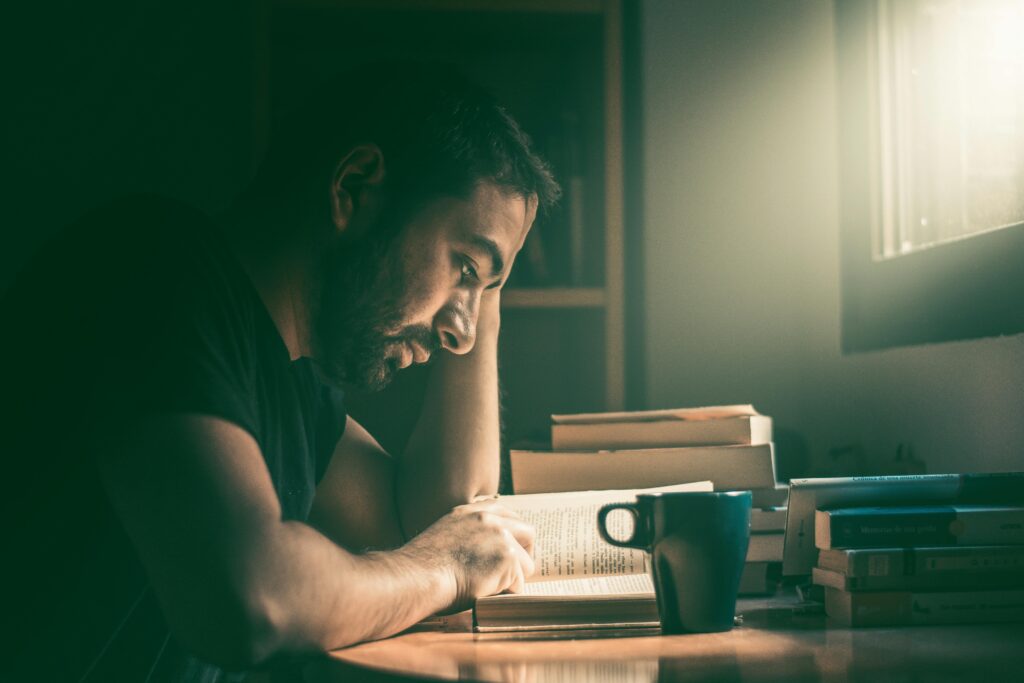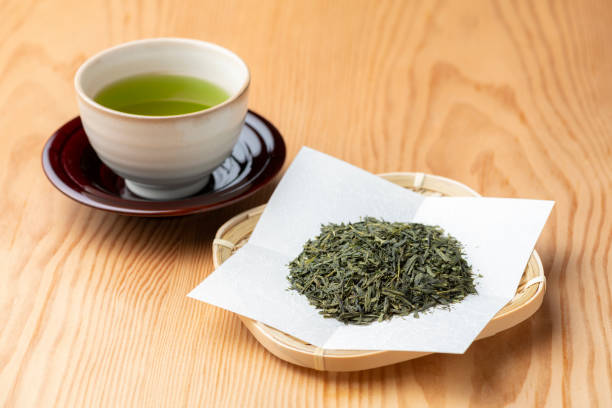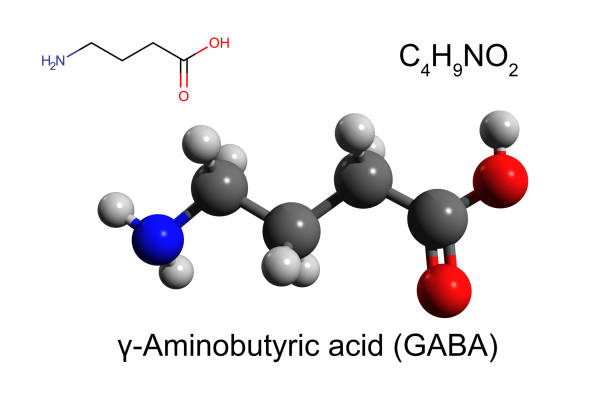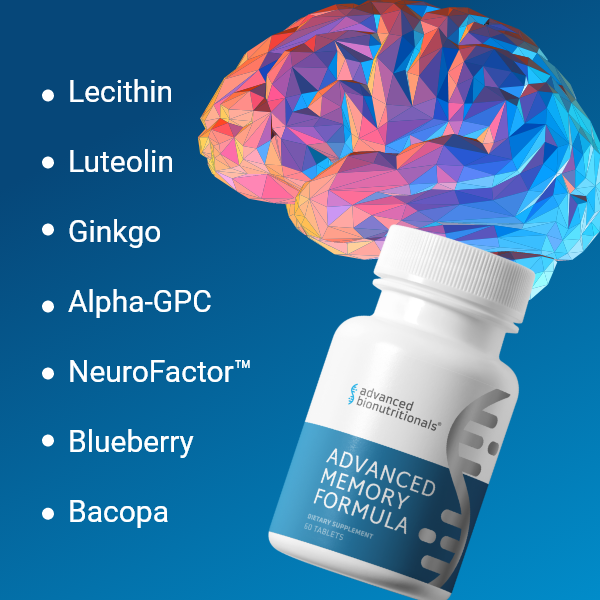
Ever feel like your mind is a web browser with way too many tabs open? One for work deadlines, another for family obligations, a dozen more for those relentless “what if” scenarios… all while a pop-up ad for your deepest insecurities flashes incessantly. If that sounds familiar, you’re not alone. The constant hum of anxiety in our fast-paced world can be overwhelming, making it difficult to focus, relax, and simply be.
But what if you could gently guide your brain back to a state of calm clarity? What if there were tools that could help you turn down the volume on stress and turn up your capacity for focus and peace?
This is where the conversation about nootropics for anxiety begins. Forget the sci-fi notion of a “limitless” pill. We’re talking about natural and synthetic compounds that can help support your brain’s resilience to stress, promoting a sense of well-being without the significant side effects of traditional medications. Whether you’re battling social anxiety, performance jitters, or that constant undercurrent of worry, understanding these cognitive enhancers could be a game-changer.
Ready to close some of those mental tabs? Let’s explore the world of anxiety nootropics together and find the right path for your unique brain.
Answer Box
The best nootropics for anxiety work by supporting your brain’s natural ability to manage stress. Key options include L-theanine, which promotes relaxation without drowsiness; adaptogens like Ashwagandha and Rhodiola Rosea, which help balance cortisol levels; and GABA, which has a calming effect on the nervous system. These natural anxiety aids can help improve focus and reduce feelings of overwhelm by modulating neurotransmitters related to mood and stress.
Table of Contents
- Understanding the Anxiety-Brain Connection: Why Do We Feel So Stressed?
- What Are Nootropics and How Can They Help with Anxiety?
- The Top 7 Nootropics for Anxiety and Stress Relief
- L-Theanine: The Calming Amino Acid in Your Tea
- Ashwagandha: The Ancient Adaptogen for Modern Stress
- Rhodiola Rosea: The Fatigue-Fighting Flower
- GABA: The Brain’s Own “Off Switch”
- Bacopa Monnieri: The Memory Enhancer with Calming Perks
- Lion’s Mane Mushroom: The Nerve-Nourishing Fungus
- Phosphatidylserine (PS): The Cortisol Crusher
- Beyond the Basics: Finding the Best Nootropics for Social Anxiety
- Nootropics for Focus and Anxiety: Taming the Overactive Mind
- Are There Nootropics for Anxiety and Depression?
- How to Safely Use Nootropics for Stress Management
- Conclusion: Reclaiming Your Calm with Nootropics for Anxiety
- Frequently Asked Questions (FAQ)
Understanding the Anxiety-Brain Connection: Why Do We Feel So Stressed?

Before we dive into potential solutions, it helps to understand what’s happening in your brain during moments of anxiety. At its core, anxiety is a natural and even helpful human response. It’s your body’s built-in alarm system, designed to keep you safe from perceived threats.
When you encounter a stressor, a small, almond-shaped region in your brain called the amygdala fires up. This triggers the release of stress hormones like adrenaline and cortisol. Your heart races, your breathing quickens, and your senses go on high alert. This is the classic “fight-or-flight” response.
The problem arises when this system becomes overactive. Instead of just reacting to immediate dangers, it starts responding to future worries, social situations, or even just the pressure of a long to-do list. When cortisol levels remain chronically high, it can lead to a cascade of issues:
- Brain Fog: Difficulty concentrating and remembering things.
- Irritability: A short fuse and emotional volatility.
- Fatigue: Feeling mentally and physically drained.
- Sleep Disturbances: Trouble falling asleep or staying asleep.
This is where the targeted use of nootropics for stress can be incredibly beneficial. They don’t just mask the symptoms; many work by addressing the underlying neurochemical imbalances that contribute to a state of chronic stress.
What Are Nootropics and How Can They Help with Anxiety?
The term “nootropic” might sound intense, but the concept is simple. Coined in 1972 by Dr. Corneliu Giurgea, it describes substances that can enhance cognitive function. To be a true nootropic, a substance must meet a few criteria, including being neuroprotective and having very few side effects.
So, how can these “smart drugs” help with anxiety?
Anxiety isn’t just a feeling; it’s a physiological state rooted in your brain’s chemistry. Anxiety nootropics work through several mechanisms to restore balance:
- Modulating Neurotransmitters: They can increase calming neurotransmitters like GABA and serotonin or regulate excitatory ones like glutamate.
- Balancing Hormones: Many nootropics, especially adaptogens, help regulate the hypothalamic-pituitary-adrenal (HPA) axis, which is your body’s central stress response system. This helps control cortisol production.
- Promoting Alpha Brain Waves: Some compounds, like L-theanine, can increase alpha brain waves, which are associated with a state of “wakeful relaxation”—the feeling you get when you’re in a creative flow or meditating.
- Supporting Brain Health: Chronic stress can be toxic to brain cells. Nootropics with neuroprotective properties can help defend against this damage and even encourage the growth of new neurons (neurogenesis).
Essentially, using nootropics for anxiety is like giving your brain the raw materials it needs to build a more resilient and balanced stress response system.
The Top 7 Nootropics for Anxiety and Stress Relief
Navigating the world of supplements can be confusing. Here’s a breakdown of the most well-researched and effective best nootropics for anxiety, backed by science and real-world results.
L-Theanine: The Calming Amino Acid in Your Tea
If you’ve ever felt a sense of calm focus after sipping a cup of green tea, you’ve experienced the magic of L-theanine. This amino acid is renowned for its ability to take the “edge” off stimulants like caffeine, but it’s a powerhouse for anxiety on its own.
- How it Works: L-theanine easily crosses the blood-brain barrier and boosts levels of GABA, serotonin, and dopamine. As mentioned by experts at Healthline, it also increases those calming alpha brain waves.
- Best For: General anxiety, performance jitters, and improving sleep quality. It’s fantastic for anyone who wants to feel relaxed without feeling sedated.
- Dosage: Typically 100-200 mg, once or twice daily.

Ashwagandha: The Ancient Adaptogen for Modern Stress
Ashwagandha is a cornerstone of Ayurvedic medicine and one of the most powerful adaptogens available. An adaptogen is a natural substance that helps your body “adapt” to physical and mental stressors.
- How it Works: Ashwagandha’s primary benefit comes from its ability to significantly lower cortisol levels. A study published by the National Institutes of Health (NIH) showed that individuals taking ashwagandha had substantially reduced cortisol levels and self-reported scores on anxiety and stress scales.
- Best For: Chronic stress, fatigue-related anxiety, and feeling “wired and tired.”
- Dosage: Usually 300-600 mg of a standardized root extract per day.

Rhodiola Rosea: The Fatigue-Fighting Flower
Hailing from the cold, mountainous regions of Europe and Asia, Rhodiola Rosea is another premier adaptogen known for its energizing yet calming properties. If your anxiety leaves you feeling mentally exhausted, this is one of the best nootropics for stress you can try.

- How it Works: Rhodiola helps regulate the HPA axis and supports the production of ATP, your cells’ main energy source. It also influences key neurotransmitters like serotonin and dopamine, helping to fight mental fatigue and improve mood.
- Best For: Burnout, stress-induced fatigue, and improving mental stamina under pressure.
- Dosage: Look for extracts standardized for rosavins and salidrosides, typically in doses of 200-600 mg per day.
Ready to build a more resilient mind? Many people find that combining these powerful ingredients into a daily routine provides the most comprehensive support. If you’re looking for an expertly formulated blend to get started, this daily brain-boosting routine is designed to enhance memory, focus, and your ability to handle stress.
GABA: The Brain’s Own “Off Switch”
Gamma-aminobutyric acid (GABA) is an inhibitory neurotransmitter, which means it blocks, or inhibits, certain brain signals and decreases activity in your nervous system. Think of it as the brake pedal for a racing mind.
- How it Works: When GABA attaches to a protein in your brain known as a GABA receptor, it produces a calming effect. Low GABA activity is linked to anxiety, restlessness, and insomnia. While the effectiveness of oral GABA supplements in crossing the blood-brain barrier is debated, many users report significant calming benefits.
- Best For: Acute feelings of panic or being overwhelmed, and for promoting sleep.
- Dosage: Starts around 100-250 mg and can go higher, but it’s best to start low.

Bacopa Monnieri: The Memory Enhancer with Calming Perks
Traditionally used in Ayurvedic medicine to enhance memory and learning, Bacopa Monnieri is also one of the most effective nootropics for anxiety. Its effects are more subtle and build up over time, making it ideal for long-term brain health and stress management.
- How it Works: Bacopa is known to modulate serotonin and dopamine and has adaptogenic properties, reducing cortisol levels. Research suggests it can improve mood and reduce anxiety scores with consistent use over several weeks.
- Best For: Students or professionals who want to reduce anxiety while boosting memory and cognitive function.
- Dosage: Typically 300 mg of an extract standardized to 55% bacosides.
Lion’s Mane Mushroom: The Nerve-Nourishing Fungus
This unique-looking mushroom isn’t just a culinary delight; it’s a potent nootropic with incredible benefits for brain health. While famous for boosting cognitive function, its effects on mood are just as impressive.
- How it Works: Lion’s Mane stimulates the production of Nerve Growth Factor (NGF), which is crucial for the health and maintenance of neurons. Studies, particularly those focusing on the hippocampus (a brain region involved in emotion and memory), suggest that Lion’s Mane can reduce anxious and depressive behaviors.
- Best For: Individuals looking for holistic brain support, including mood, memory, and nerve health. It’s one of the best nootropics for anxiety and depression when used consistently.
- Dosage: Varies widely based on the extract, from 500 mg to 3000 mg per day.
Phosphatidylserine (PS): The Cortisol Crusher
Phosphatidylserine (PS) is a fatty substance called a phospholipid that covers and protects the cells in your brain and carries messages between them. It’s a vital component of cell membranes and is essential for healthy cognitive function.
- How it Works: Its main benefit for anxiety comes from its proven ability to blunt cortisol levels in response to stress. As confirmed by sources like WebMD, supplementing with PS can help keep your primary stress hormone in check, especially during demanding tasks.
- Best For: Performance-related stress (like public speaking or exams) and for older adults looking to support cognitive health.
- Dosage: A common dose is 100 mg, taken up to three times per day.
Beyond the Basics: Finding the Best Nootropics for Social Anxiety
Social anxiety is a specific beast. It’s that intense fear of being judged, negatively evaluated, or rejected in social or performance situations. For those struggling with this, certain nootropics can be particularly helpful.
The best nootropics for social anxiety often work by boosting confidence and reducing the “fight-or-flight” response in social settings.
- L-Theanine: Is a clear winner here. Taking it about an hour before a social event can promote a feeling of calm control without making you drowsy. You’re still sharp and engaged, just less rattled.
- Aniracetam (A Nootropic Requiring Caution): While many of the substances on our list are natural, the racetam family of synthetic nootropics is popular in cognitive enhancement circles. Aniracetam, in particular, is known for its anxiolytic (anti-anxiety) effects, with users often reporting increased sociability and verbal fluency. However, it’s less studied than natural options and should be approached with more caution. If this is a path you’re considering, diving into a resource like Nootropics for ADHD can provide more insight into cognitive-focused compounds.
- Ashwagandha: By reducing your baseline cortisol levels, Ashwagandha can make social situations feel less threatening over time. It helps you enter the room with a lower level of background stress, making it easier to engage genuinely.
Combining these nootropics for social anxiety with practices like mindfulness or therapy can be a powerful strategy for reclaiming your social confidence.
Nootropics for Focus and Anxiety: Taming the Overactive Mind
Have you ever noticed how difficult it is to focus when you’re anxious? Your mind jumps from one worry to the next, making it impossible to concentrate on the task at hand. This is because the brain circuits for anxiety and executive function (like focus and planning) are deeply intertwined.
This is why managing focus and anxiety together is so crucial. You can’t effectively fix one without addressing the other.
The ideal nootropic stack for this purpose combines anxiolytic (anti-anxiety) ingredients with compounds that support neurotransmitters like dopamine and acetylcholine, which are critical for focus.
A classic and highly effective combination is L-Theanine and Caffeine.
- Caffeine: Boosts alertness and dopamine.
- L-Theanine: Smooths out the “jitters” from caffeine and promotes a state of calm focus.
This synergy allows you to get the cognitive boost from caffeine without the accompanying anxiety spike. For those looking to dive deeper into combining ingredients, learning how to create the best nootropic stack for your specific needs is a logical next step.
Are There Nootropics for Anxiety and Depression?
Anxiety and depression often go hand-in-hand. They are distinct conditions, but they share common underlying biological pathways, including inflammation and neurotransmitter dysregulation. Therefore, some of the best nootropics for anxiety and depression are those that offer broad-spectrum mood support.
- Lion’s Mane Mushroom: As mentioned, its ability to promote NGF and reduce inflammation makes it a strong candidate for supporting both conditions.
- Bacopa Monnieri: Its modulating effects on serotonin, a key neurotransmitter in both anxiety and depression, make it a valuable long-term supplement.
- Rhodiola Rosea: By fighting mental fatigue and supporting dopamine, Rhodiola can help lift the fog of depression while simultaneously building resilience to stress.
It is crucial to note that depression is a serious medical condition. While these nootropics can be supportive, they should never replace professional medical advice or treatment. Always consult with a healthcare provider, such as the experts at the Mayo Clinic, to create a comprehensive treatment plan.
How to Safely Use Nootropics for Stress Management
Embarking on your journey with natural anxiety aids is exciting, but safety should always be your top priority. Here’s how to do it right:
- Start Low and Go Slow: Begin with the lowest effective dose of a single nootropic to see how your body reacts before increasing it or adding another supplement.
- Talk to Your Doctor: This is non-negotiable, especially if you have a pre-existing medical condition or are taking any prescription medications (particularly SSRIs, blood thinners, or blood pressure medication).
- Choose High-Quality Brands: The supplement industry is not tightly regulated. Look for brands that provide third-party testing for purity and potency. Knowing where to safely buy nootropics online is a critical part of this process.
- Cycle Your Supplements: Some nootropics, particularly adaptogens, can be more effective when cycled. This might mean taking them for five days and then two days off, or for a few months followed by a month-long break. This prevents tolerance and gives your body a reset.
- Listen to Your Body: Nootropics are not a one-size-fits-all solution. What works wonders for one person might not work for you. Pay close attention to your mood, energy levels, and sleep. Keep a journal to track effects.
Conclusion: Reclaiming Your Calm with Nootropics for Anxiety
Living with anxiety can feel like a constant battle against your own mind. But it doesn’t have to be that way. By understanding the intricate connection between your brain chemistry and your emotional state, you can begin to take strategic, supportive action.
The nootropics for anxiety we’ve discussed today—from the gentle calm of L-Theanine to the stress-busting power of Ashwagandha—offer a promising avenue for restoring balance. They are not magic pills, but rather powerful tools that can support your nervous system, regulate stress hormones, and promote a state of focused calm.
When combined with a healthy lifestyle—good nutrition, regular exercise, and mindfulness practices—these anxiety nootropics can help you move from a state of merely surviving to truly thriving.

Are you ready to quiet the noise and sharpen your focus? Take the first step toward a more serene and resilient mind today. For a powerful, all-in-one solution designed to support cognitive health and manage stress, consider exploring this expertly crafted brain-boosting formula.
Frequently Asked Questions (FAQ)
1. Can nootropics for anxiety replace my prescription medication? No. Nootropics and natural anxiety aids should be considered supplements, not replacements for prescription medication. If you are currently taking medication for anxiety or depression, you must speak with your healthcare provider before adding any new supplements to your routine, as interactions can occur.
2. What are the best nootropics for social anxiety? For social anxiety, L-Theanine is an excellent choice as it promotes calmness without sedation, making it easier to engage in social situations. Adaptogens like Ashwagandha can also be very helpful by lowering baseline stress levels over time, making social triggers feel less intimidating.
3. How long does it take for anxiety nootropics to work? The onset of effects varies. Some nootropics, like L-Theanine or GABA, can be felt within an hour. Others, particularly adaptogens like Ashwagandha and Bacopa Monnieri, have cumulative effects and may take several weeks of consistent use to notice a significant difference in your overall stress resilience and mood.
4. Is it safe to combine different nootropics for stress? Yes, this practice is known as “stacking.” A common and effective stack for focus and anxiety is L-Theanine and Caffeine. However, it’s crucial to research each component and start with low doses. When in doubt, begin with a single ingredient to understand its effect on you before creating your own stack or choosing a pre-formulated one.
5. Are there any side effects of using nootropics for anxiety? While most of the natural nootropics discussed are well-tolerated, side effects can occur. These are typically mild and may include digestive upset, headaches, or drowsiness, especially at higher doses. This is why it’s essential to start with a low dose and choose high-quality, pure products. Always consult with a doctor before starting any new supplement.
